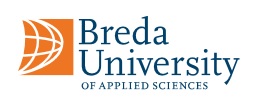Bachelor of International Facility Management – Breda University of Applied Sciences
Breda, Netherlands
Reviewed by NVAO
- Valid from
- 30-10-2019
- Valid until
- 01-05-2025
Contact information
- Institution
- Breda University of Applied Sciences
- Website
- https://www.buas.nl/en/programmes/international-facility-management
- Country
- Netherlands
Assessment report
CeQuint-Report-Facility-Management-Breda-UniversityExecutive summary
On 31 October and 1 November 2018 an AeQui committee performed an assessment of the bachelor’s programme in International Facility Management of Breda University of Applied Sciences. The overall conclusion of the committee is that the programme adheres to the criteria of the Frameworks for the Assessment of Quality in Internationalisation.
Standard 1. Intended internationalisation
The committee assesses the intended internationalisation as good. The committee concludes that the programme has clear internationalisation goals which are adequately documented and well suited to an International Facility Management bachelor’s programme. The goals are widely shared and supported by stakeholders both within and outside the programme. The committee notes that the goals include measures which undoubtedly contribute to the quality of teaching and learning. The internationalisation goals are adequately operationalised in objectives which are sufficiently verifiable to allow the monitoring of the achievement of these goals.
Standard 2. International and intercultural learning
The committee assesses the international and intercultural learning within the programme as good. The committee concludes that the intended learning outcomes are validated internationally. In addition, the intended learning outcomes are explicitly related to the development of the international and intercultural skills necessary for working in the international professional field of facility management. Both the international dimension of the overall intended learning outcomes and the explicit international and intercultural learning outcomes per course correspond well to the programme’s internationalisation goals. In line with the programme’s approach to internationalisation, international and intercultural competencies are assessed as an integral part of the regular course assessments. The assessment methods used are suitable for measuring the achievement of the international and intercultural intended learning outcomes and the graduates demonstrably achieve these learning outcomes.
Standard 3. Teaching and learning
The committee assesses the teaching and learning within the programme as good. The committee concludes that the content and the structure of the curriculum provide verygood means for achieving its international and intercultural intended learning outcomes. In addition, the teaching methods are suitable. The committee also concludes that the international learning environment provides adequate conditions for achieving the international and intercultural intended learning outcomes.
Standard 4. Staff
The committee assesses this standard as good. Based on the site visit and the documents studied, the committee concludes that the staff involved in the programme is very competent and internationally oriented.this facilitates the achievement of the international and intercultural intended learning outcomes. In addition, the composition of the staff reflects the international focus of the programme and lecturers have ample nternational professional experiences. The HRM policy facilitates professional development, the realisation of personal ambitions and ample services for lecturers that correspond to the staff composition.
Standard 5. Students
The committee assesses the criteria regarding students as satisfactory. Even though the committee notes that the composition of the student group is not yet in line with the programme’s internationalisation goal, the committee also concludes that all important conditions are in place in order to realise a real international classroom and ample internationalisation experience for students.
Extensive services are available for national and international students. The learning environment is very suitable for more international students. Increasing the number of international students is essential to further improve the realisation of the generic international learning outcome of the programme. The committee therefore supports the programme’s ambition to attract more internati